Moonnepa8 - Astrophy

More Posts from Moonnepa8 and Others



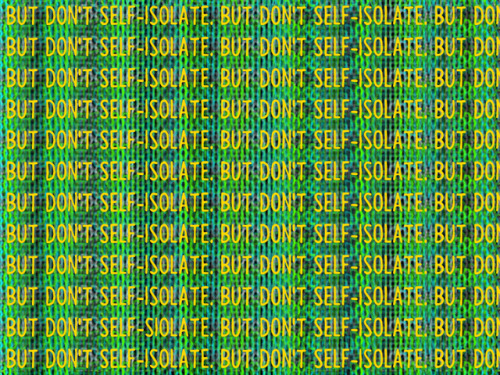






“Clever Things” by Samuil Marshak, illustrated by Mai Miturich (USSR, 1966)


For every person who thinks you're "too quiet" there's one who thinks you're an amazing listener. For every person who thinks you're "too clingy" there's one who loves how much and how openly you care about others. For every person who thinks you're "too weird" there's one who admires how you dare to stand out from the crowd. For every person who thinks you're "too sensitive" there's one who respects you for being so in touch with your feelings. For every person who thinks you're "too confident" there's one who thinks your self respect is an inspiration. What's a negative trait in one person's eyes might be exactly what someone else is looking for. It's not black or white.

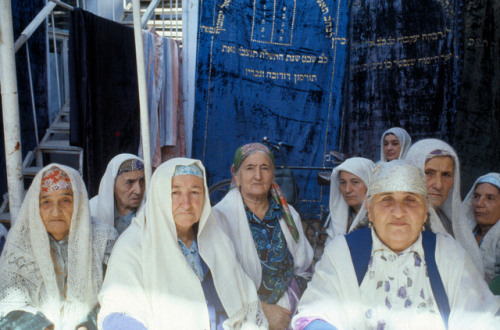

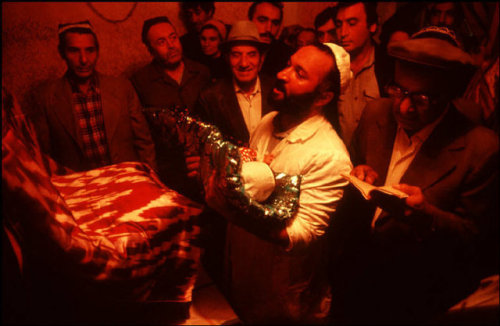

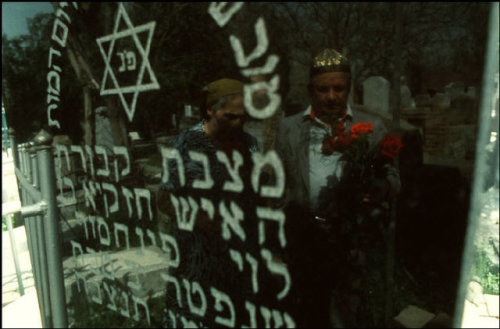
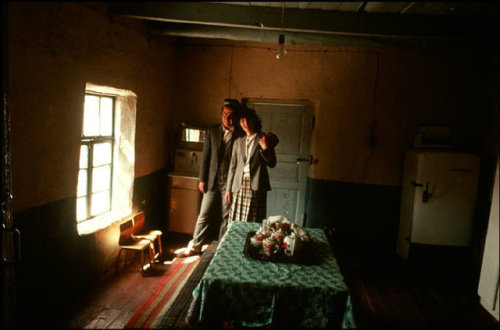


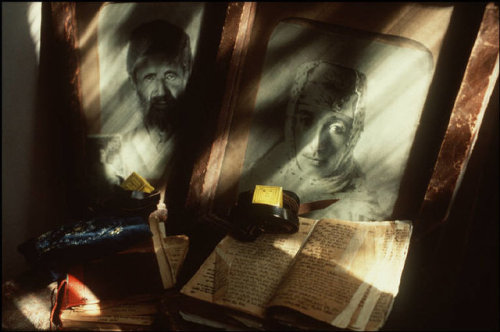
The Jewish people of Uzbekistan photographed by Gueorgui Pinkhassov
“The term Bukharan was coined by European travelers who visited Central Asia around the 16th century. Since most of the Jewish community at the time lived under the Emirate of Bukhara, they came to be known as Bukharan Jews. The name by which the community called itself is “Isro'il” (Israelites).
The appellative Bukharian was adopted by Bukharan Jews who moved to English-speaking countries, in an anglicisation of the Hebrew Bukhari. However, Bukharan was the term used historically by English writers, as it was for other aspects of Bukhara.
Bukharan Jews used the Persian language to communicate among themselves and later developed Bukhori, a Tajik dialect of the Persian language with small linguistic traces of Hebrew. This language provided easier communication with their neighboring communities and was used for all cultural and educational life among the Jews. It was used widely until the area was “Russified” by the Russians and the dissemination of “religious” information was halted. The elderly Bukharan generation use Bukhori as their primary language but speak Russian with a slight Bukharan accent. The younger generation use Russian as their primary language, but do understand or speak Bukhori.
The Bukharan Jews are Mizrahi Jews and have been introduced to and practice Sephardic Judaism.
The first primary written account of Jews in Central Asia dates to the beginning of the 4th century CE. It is recalled in the Talmud by Rabbi Shmuel bar Bisna, a member of the Talmudic academy in Pumbeditha, who traveled to Margiana (present-day Merv in Turkmenistan) and feared that the wine and alcohol produced by local Jews was not kosher. The presence of Jewish communities in Merv is also proven by Jewish writings on ossuaries from the 5th and 6th centuries, uncovered between 1954 and 1956.”

Perfect Blue
Satoshi Kon, 1997

“Our women are our pride!” - poster by G. Gausman (USSR, 1967)
“you think you’re in love and this is the one and this is it. you may be right, but before you move heaven and earth and split the sea down the middle to make it work, take their hand in yours, turn the lights off, turn your computers and phones and the tv off. shut yourself off from the world. is this someone you can sit with in the darkness? is this someone you can sit with in silence? is this someone you can spend hours doing nothing else but counting the distance between lightning and thunder? because life is more than a forever of picture perfect moments - it’s darkness, and silence and interludes in which you hold your breath. forever should not feel like forever, it should feel like no time at all; it should feel like a blink of an eye; an interlude between the lightning strike and a thunder.”
— marina v., about forevers. (via findingwordsforthoughts)
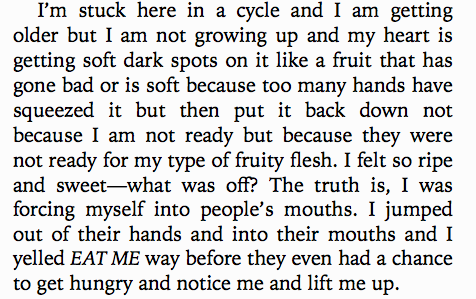
Jenny Slate, Little Weirds
-
 crimsonwithclover liked this · 1 week ago
crimsonwithclover liked this · 1 week ago -
 iivonae reblogged this · 2 weeks ago
iivonae reblogged this · 2 weeks ago -
 dad-is-on-a-hunting-trip liked this · 2 months ago
dad-is-on-a-hunting-trip liked this · 2 months ago -
 mthopeless liked this · 5 months ago
mthopeless liked this · 5 months ago -
 bluenaute liked this · 6 months ago
bluenaute liked this · 6 months ago -
 middlebodyinjury liked this · 6 months ago
middlebodyinjury liked this · 6 months ago -
 blue--bookmark reblogged this · 6 months ago
blue--bookmark reblogged this · 6 months ago -
 agnes-jean liked this · 7 months ago
agnes-jean liked this · 7 months ago -
 localpuppy reblogged this · 8 months ago
localpuppy reblogged this · 8 months ago -
 sleepydreameroncloud9 reblogged this · 8 months ago
sleepydreameroncloud9 reblogged this · 8 months ago -
 evilcatladyfromhell liked this · 9 months ago
evilcatladyfromhell liked this · 9 months ago -
 bloodbobas reblogged this · 9 months ago
bloodbobas reblogged this · 9 months ago -
 embesembe reblogged this · 9 months ago
embesembe reblogged this · 9 months ago -
 oohbuildrocket liked this · 9 months ago
oohbuildrocket liked this · 9 months ago -
 bjorkvespertine reblogged this · 9 months ago
bjorkvespertine reblogged this · 9 months ago -
 jestpurr liked this · 9 months ago
jestpurr liked this · 9 months ago -
 anemonic reblogged this · 9 months ago
anemonic reblogged this · 9 months ago -
 anemonic liked this · 9 months ago
anemonic liked this · 9 months ago -
 sswoonbabystarrynights liked this · 9 months ago
sswoonbabystarrynights liked this · 9 months ago -
 starryrika liked this · 9 months ago
starryrika liked this · 9 months ago -
 div-zero reblogged this · 9 months ago
div-zero reblogged this · 9 months ago -
 gross-soup liked this · 9 months ago
gross-soup liked this · 9 months ago -
 aaiu reblogged this · 9 months ago
aaiu reblogged this · 9 months ago -
 dahoui reblogged this · 9 months ago
dahoui reblogged this · 9 months ago -
 lookingisntseeing reblogged this · 9 months ago
lookingisntseeing reblogged this · 9 months ago -
 hersuavevoice liked this · 9 months ago
hersuavevoice liked this · 9 months ago -
 newhavenite liked this · 10 months ago
newhavenite liked this · 10 months ago -
 divinelikeflow liked this · 11 months ago
divinelikeflow liked this · 11 months ago -
 myjs liked this · 11 months ago
myjs liked this · 11 months ago -
 temple-of-floraa reblogged this · 11 months ago
temple-of-floraa reblogged this · 11 months ago -
 temple-of-floraa liked this · 11 months ago
temple-of-floraa liked this · 11 months ago -
 beloved-g reblogged this · 11 months ago
beloved-g reblogged this · 11 months ago -
 astroloves liked this · 11 months ago
astroloves liked this · 11 months ago -
 organically-gorgeous-glamorous reblogged this · 11 months ago
organically-gorgeous-glamorous reblogged this · 11 months ago -
 organically-gorgeous-glamorous liked this · 11 months ago
organically-gorgeous-glamorous liked this · 11 months ago -
 lovemeorlovemycloset reblogged this · 11 months ago
lovemeorlovemycloset reblogged this · 11 months ago -
 incomplete-phras liked this · 11 months ago
incomplete-phras liked this · 11 months ago -
 domitaenaturae reblogged this · 11 months ago
domitaenaturae reblogged this · 11 months ago -
 domitaenaturae liked this · 11 months ago
domitaenaturae liked this · 11 months ago -
 kaleb-is-definitely-sane liked this · 1 year ago
kaleb-is-definitely-sane liked this · 1 year ago -
 ellie-is-a-nerd liked this · 1 year ago
ellie-is-a-nerd liked this · 1 year ago -
 redroplet liked this · 1 year ago
redroplet liked this · 1 year ago -
 postcolonialbreakdown liked this · 1 year ago
postcolonialbreakdown liked this · 1 year ago -
 taypinks reblogged this · 1 year ago
taypinks reblogged this · 1 year ago -
 twin-sparrows liked this · 1 year ago
twin-sparrows liked this · 1 year ago
